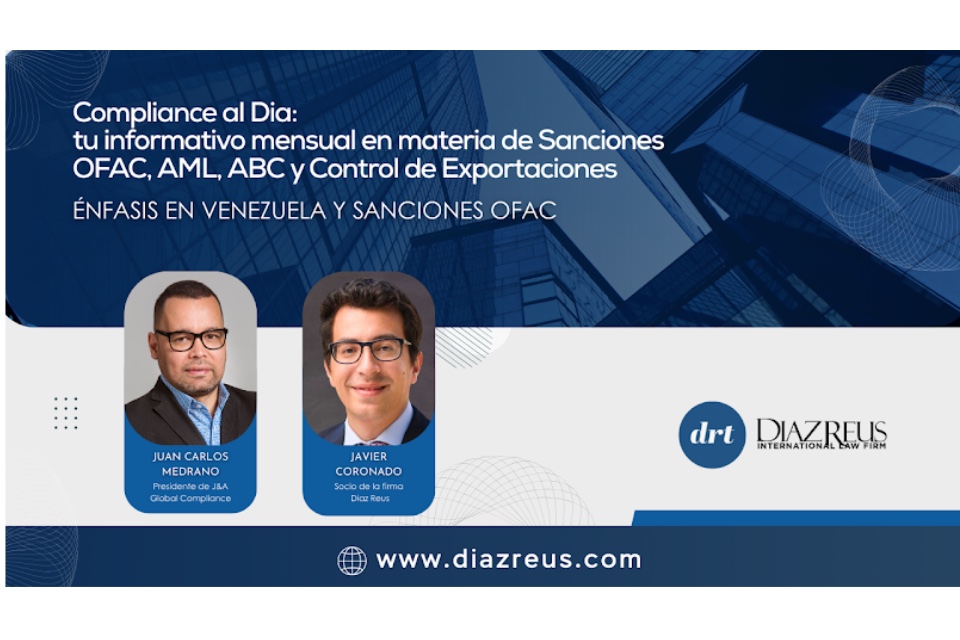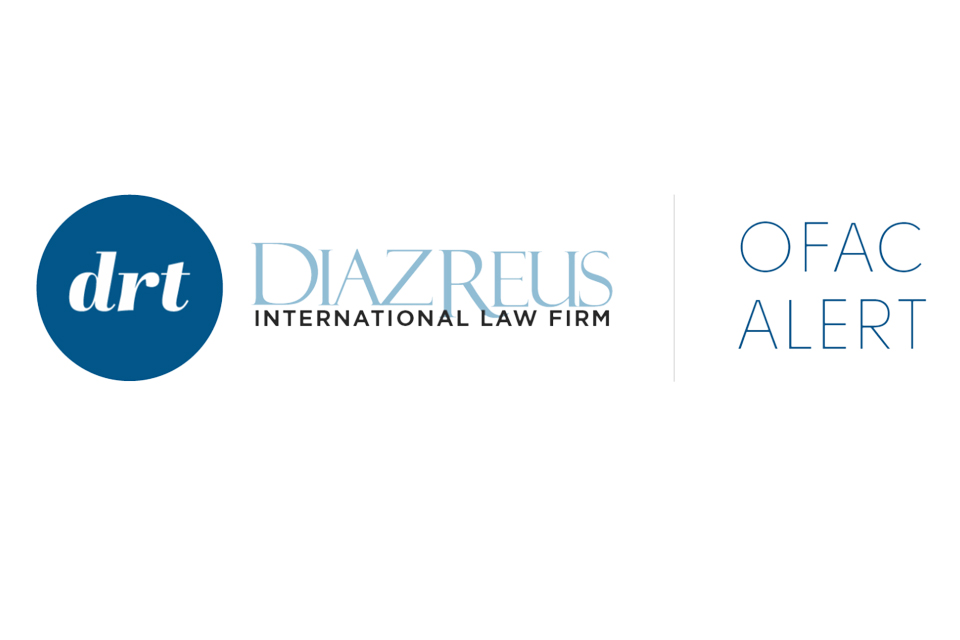Oman has enacted a seemingly comprehensive regime for the protection of intellectual property rights (IPR) through its participation in key international treaties, conventions, and protocols, and its implementation of domestic laws. These laws range from the procedural (how to register trademarks and names), to the substantive (the civil and criminal penalties for a breach). The current approach to IPR protection and the mechanisms through which this protection is carried out in Oman are similar to those used in other Middle Eastern jurisdictions. However, the courts in Oman may struggle with trademark infringement cases where the local courts have not yet developed a body of experience and knowledge in this specific area.
In this article Arti Sangar provides a broad overview of Oman’s judiciary, with an emphasis on its structure and amenability to the fair and impartial resolution of business or commercial disputes. The first section of this article offers a broad overview of the laws protecting Intellectual Property Rights (IPR) as enforced in Oman. The second section, in turn, addresses Oman’s judiciary.
I. IPR Registration, Enforcement & Protection In Oman
Through its participation in key international treaties, conventions, and protocols, and its implementation of domestic laws, Oman has enacted a seemingly comprehensive regime for the protection of intellectual property rights. These laws range from the procedural (how to register trademarks and names) to the substantive (the civil and criminal penalties for a breach). The current approach to IPR protection and the mechanisms through which this protection is carried out in Oman are similar to those used in other Middle Eastern jurisdictions. However, the courts in Oman may struggle with trademark infringement cases where the local courts have not yet developed a body of experience and knowledge in this specific area.
It is difficult to determine what, if any, protection Oman offers to unregistered intellectual property. Accordingly, registration is critical to IPR protection and enforcement.
A. Treaties, Conventions, and Protocols
As noted above, Oman is a party to several international treaties, conventions, and protocols, whose object is the protection and enforcement of intellectual property rights:
- Registered with the Gulf Cooperation Council (GCC) Patent office, Riyadh, Saudi Arabia;
- Member of the World Trade Organization (WTO) in accordance with the Omani Royal Decree No: 112/2000;
- Signatory of Trade Related Aspects of Intellectual Property Rights (TRIPS);
- Member of WIPO Convention since February 1997, in accordance with the Omani Royal Decree No: 74/96;
- Signatory to the Paris Convention for the protection of industrial property since July, 1999, in accordance with the Omani Royal Decree No: 63/98;
- Member of the Berne Convention for the protection of literary and art works since 14th July 1999;
- Member of the Patent Cooperation Treaty (PCT) as of October 26, 2001, in accordance with the Royal Decree No: 37/2001;
- Party to the Hague Agreement Concerning the International Registration of Industrial Designs since 4 March 2009; and
- Acceded to the Protocol relating to the Madrid Agreement concerning the International Registration of Marks in 2007.
B. Local Laws
In addition to the international charters listed above, Oman has enacted a series of local laws that will further promote the protection and enforcement of IPR:
- Law on Trademarks:
- Royal Decree No. 38/2000
- Law on Patents:
- Royal Decree No. 82/2000
- Law on Copyrights:
- Royal Decree No. 37/2000
- Law on Industrial Designs:
- Royal Decree No. 39/2000
- Law on Geographical Indications:
- Royal Decree No. 40/2000
The principal Omani Laws related to intellectual property rights are listed below.
i. Law on Trademarks (Royal Decree No. 38/2000)
The Law on Trademarks was updated in 2000 by Royal Decree 38/2000, which sets out specific rules as to which trademarks may be registered and provides a list of permitted trademarks. In order to be fully protected, a trademark must be registered in the Register of Trademarks and Trade Names at the Ministry of Commerce and Industry in Oman. The registration of a trademark provides protection for 10 years, after which time the registration may be renewed.
Infringement of a registered mark is punishable with imprisonment of up to two years or a fine of up to 2000 RO (Omani Rial).
Article 35 of the Law on Trademarks (Royal Decree No: 38/2000) states as follows:
A punishment by imprisonment for a period not exceeding two years and/or fine not exceeding [Omani Rial] RO 2000 shall be applicable to any person who:
(i) counterfeits a mark registered under this law, imitates such a mark in a manner that is likely to mislead the public or uses in bad faith a counterfeited or imitated mark;
(ii) knowingly sells, offers for sale or circulation or possesses with the intention to sell products bearing a counterfeited, imitated or illicitly placed mark;
(iii) uses in bad faith a mark identical with or similar to a well-known mark, whether registered or not registered, in a manner that is likely to mislead the public, provided that in the case of a well known mark that is not registered, goods or services are identical or similar;
(iv) contravenes in bad faith provisions on trade indications; and
(v) intentionally contravenes provisions on unfair competition or protection of trade secrets.
Article 36 discusses preliminary injunctive relief available for trademark infringement and reads as follows:
The owner of a mark may, at any time even before filing a commercial or criminal action, request, by a petition accompanied by an official certificate of the registration of the mark, that the chief judge of the Commerce Court issue an order to take the necessary conservative measures, particularly the seizure of equipment and implements likely to be used or effectively used in committing the offense. The same shall apply to products, goods, titles, packages, papers or whatever bears the infringing mark or indications.
Article 38 further states as follows:
[the] court may decide the destruction of illegal marks and, when necessary, products, packages, wrapping material, titles, catalogues and other material bearing such marks or illegal indications.ii. Law on Patents (Royal Decree No. 82/2000)
Patents are governed by Royal Decree 82/2000. An invention is patentable in Oman if it is new, contains a novel idea, and is worthy of industrial application. However, it must not be inconsistent with public discipline or etiquette, undermine national security, or be incompatible with Sharia Law. Where a patent arises out of an employee’s work, employers are treated as the owners of the patent, although in such a case the inventor is entitled to fair remuneration.
Applications for patents can be made to the Department of Agencies and Intellectual Property at the Ministry of Commerce and Industry in Oman. The patent owner may use, manufacture, import, or offer for sale the patented product, and no third party may exploit the patent without permission of the patent owner. If a breach of a patent is committed it will give rise to both civil and criminal sentences.
Patent registration at the Gulf Cooperation Council (GCC) Patent Office, Riyadh, Saudi Arabia:
Despite the Omani patent legislation, it may be advisable to have a patent also registered at the Gulf Cooperation Council (GCC) Patent Office in Riyadh, Saudi Arabia. The advantage of this is that it gives the patent owner protection throughout the member states of the Gulf Co-operation Council i.e., Bahrain, Kuwait, Oman, Qatar, Saudi Arabia, and the United Arab Emirates. The GCC Patent Regulations mirror the Oman regulations almost identically. This provides tremendous benefits to inventors and their counsel in terms of simplicity and consistency of filing for patent protection in the GCC.
iii. Law on the Protection of Copyright and Related Rights (Royal Decree No. 37/2000)
In Oman, an author’s copyright and related rights are protected under Royal Decree 37/2000. This sets out the types of works that may be protected by copyright, which authors can be protected, what rights are given to these authors, and penalties for non-compliance.
The law applies to authors of original literary, scientific, technical, and cultural works, irrespective of their monetary value. These rights continue until 50 years after the author’s death. The importance of these copyright provisions is reflected in the penalties imposed for infringement. This is punishable by imprisonment for up to two years or a fine of up to RO 2000.
iv. Law on the Protection of Industrial Designs & Patterns (Royal Decree No.39/2000)
Royal Decree 39/2000 regulates industrial drawings and patterns. In order to be protected, a drawing or pattern must be registered in the trade drawings and patterns register at the Ministry of Commerce and Industry in Oman. The person who created the drawing or pattern is then deemed to be the owner, unless another party can prove this not to be the case.
The design must be original and, again, must conform to Oman’s standards of decency, in order to enjoy protection. The protection of a registered drawing or pattern lasts for ten years from the date of submission of an application for its registration. Illegally copying the registered design is punishable by imprisonment or fine.
v. Law on the Protection of Geographical Indications (Royal Decree No. 40/2000 )
For the purpose of this law, a geographical indication identifies a good as to its origin and geographical environment in any country. This law protects competent authorities, natural persons, or any interest group of producers and consumers of any natural, agricultural, industrial, or handicraft products having a distinctive characteristic or reputation attributable to their geographical origin.
vi. Law on the Protection of Topographies Rights of Integrated Circuits (Royal Decree No. 41/2000)
An integrated circuit means a product, in its final form or an intermediary form, which consists of interconnections or elements at least one of which is active and which is intended to perform an electronic function.
II. Oman’s Judicial System
Oman, like virtually all other Arab countries, is a civil law jurisdiction. Although the law provides for an independent judiciary, the executive branch strongly influences the judiciary in Oman.
The Basic Statute of Oman, issued by Royal Decree No. 101/1996, (“The Basic Statute”) provides for the rule of law, the impartiality of judges, the independence of the judiciary, and prohibition of any interference in a lawsuit or in the matters of justice.
Article 59 (Rule of Law; Impartiality) of the Basic Statute states as follows:
The sovereignty of the Law is the basis of governance in the State. Rights and freedoms are guaranteed by the dignity of the judiciary and the probity and impartiality of the judges.
Article 60 ( Independence of the courts) of the Basic Statute states as follows:
Judicial power is independent and vested in the courts of law, of whatever type or status, which issue judgments in accordance with the Law.
Article 61 (Independence of Judges) of the Basic Statute further states:
There is no power over the judges in their rulings except the Law. Judges can only be dismissed in cases specified by the Law. No party may interfere in a lawsuit or in matters of justice; such interference shall be a crime punishable by law. The Law shall specify the conditions to be fulfilled for those administering justice, the conditions and procedures for the appointment of judges, their transfer and promotion, the security offered to them, the cases in which they are not liable for dismissal, and other relevant provisions.
Article 25 (Right to Litigation) of the Basic Law states as follows:
Litigation is a protected right guaranteed to all people. The Law prescribes the procedures and conditions necessary to exercise such right. The State, as far as possible, shall guarantee the approximation of judicial bodies to litigation and the prompt adjudication of cases.
The Sultan of Oman makes all judicial appointments (Article 42 of the Basic Statute) and presides over the Supreme Judicial Council. The Supreme Judicial Council oversees the judiciary (Article 66 of the Basic Statute) and formulates judicial policies.
As per the Basic Statute, the legal system in Oman is based primarily on the Islamic law and Sharia traditions of the Ibadi School of Islam. Article 2 of the Basic Statute states:
The State’s religion is Islam and Islamic Sharia is the basis for legislation.
Pursuant to Omani Advocacy Law (Royal Decree 108/1996), persons practicing advocacy must be independent, ensure delivery of justice, and uphold rule of law by safeguarding the rights of clients. Only Omani lawyers are permitted to practice in courts.
Legislation in Oman consists of two types: the primary and secondary legislation. Primary legislation is promulgated by the Sultan (Article 42 of the Basic Statute) and is known as the “Royal Decree.” The secondary legislation is issued pursuant to ministerial decisions according to specific powers delegated by royal decrees to the relevant executive or ministerial body.
The court structure in Oman provides for a three-tier court system and sets out the different levels of courts as follows:
(1) Courts of First Instance, (2) Appellate Courts, and (3) the Supreme Court. These courts are competent to hear civil and commercial matters, including intellectual property infringement matters. The Omani courts consider the following matters when ruling on commercial matters: the terms of the contract, legislative provisions rules of custom and practice, and the provisions of Sharia law. There are six Appellate Courts and 45 Courts of First Instance. Courts of First Instance constitute the lowest rung of the judicial hierarchy. The Supreme Court has appellate jurisdiction over all other courts. It has authority to review legal principles, review decisions of lower courts, and supervise judges in their application and interpretation of the law.
Some of the practical issues related to the Omani court system are addressed below:
- Oman’s legal system is relatively young. The federal courts were established in 1978, and are heavily influenced by civil jurisdictions, especially Egypt. There may be concerns relating to the Omani civil courts’ ability to cope with the increasing complexity of international commercial issues.
- All court hearings are in Arabic (Article 3 of the Basic Statute). Accordingly, documents prepared in a language other than Arabic must be translated into Arabic before presentation to the court. This issue often causes delays in court proceedings.
- There is no formal principle of precedent in Oman and the courts of Oman do not generally consider themselves bound by their previous decisions. The rationale is that a judge under Sharia Law is not bound by precedents, rules, or prior decisions as in common law.
- There can be delays in court proceedings during summer, Ramadan, and other noted days in Islam.
- The Omani Civil & Commercial Procedure Law (Royal Decree 29/2002) does not include modern case management tools, and all but the smallest judgments can face multiple appeals without significant cost sanctions. As a result, disputes can be protracted.
- The general rule in Omani law is that an aggrieved party will be compensated for its direct losses, as opposed to indirect losses. However, there is no clear-cut definition of what constitutes a “direct” and “indirect” loss.
- There is no formal system of discovery in the sense as it exists in the United States, although the court does have the power to order production of documents which it considers relevant. When lodging pleadings with the court, all evidence in support of such pleadings must also be attached. Documentary evidence is given a high level of significance within Omani courts.
- Enforcement of Foreign Judgments can be challenging. The Omani Civil & Commercial Procedure Law (Royal Decree 29/2002) lays down the conditions for enforcement of foreign judgments in Oman. However, due to the strictness of these conditions, foreign judgments may be of evidentiary value only and matters may have to be litigated de novo in an Omani Court.
- Some of the Omani laws, such as the commercial agency law of Oman (Royal Decree No. 26/1977), may contain provisions that are favorable to Omani locals and which may lead to unexpected results for uninformed foreign companies. It is therefore advisable to only appoint a local agent after extensive due diligence has been conducted on the proposed agent’s business activities and reputation, and a detailed agency agreement negotiated and signed.
Despite some of these challenges, Omani courts are beginning to take a fast-track and fair approach to many proceedings. Although many of the laws designed to protect IPR remain untested, the legislation demonstrates the clear aim of protecting intellectual property rights in Oman, in line with many other Middle Eastern countries.













